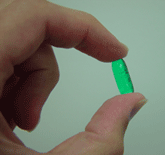
Last week was a good week for Big Pharma. Wednesday’s passage in the Senate, 93 votes to 1, of a bill sponsored by Ted Kennedy has been heralded by some for strengthening the Food and Drug Administration. In fact, it only serves to tighten the drug companies’ grip on the FDA by allowing the industry to pay for the testing of its own products, setting up potentially huge conflicts of interest. At the same time, the Senate helped tighten the drug companies’ grip on the market, blocking the importation of low-cost drugs from Canada.
It is true that the legislation steps up regulations on advertising and gives the FDA more authority to scrutinize drug safety. It also sets up a surveillance scheme to follow adverse effects of drugs; in theory, this might signal some change in philosophy in the sense that the FDA will now look at a drug over its lifetime, not just in the years before it gets approval. But in practice, the FDA doesn’t have the money or the staff to be an effectively regulator. Instead of giving the agency the money to do its job, Kennedy’s legislation allows companies to underwrite the paychecks of the regulators after a drug goes to market—just as pharma “user fees” now pay for much of the regulation that goes on before a new drug is approved.
This legislation doesn’t even begin to get at what’s really going on in the drug business, where the big companies are well along with their program to turn doctors into veritable drug salespeople through an elaborate system of thinly disguised kickbacks. A brand new example comes courtesy of the New York Times, which reports on psychiatrists who have been prescribing an antipsychotic drug called Risperdal in teenagers—including many who were not suffering from psychosis, but entirely unrelated disorders such as eating disorders—while also receiving payments from the drug’s maker for speaking engagements.
Big Pharma spends $15.7 billion promoting drugs annually. Of that total, $4.8 billion goes to 100,000 drug reps who literally go door to door, doctor’s office to doctor’s office, giving away sample batches of pills, doling out gifts, arranging dinners and other entertainment, setting up seminars, offering free meals to hospital residents—making sure, along the way, to bring assortments of candy and cheeses for the nurses and office workers.
These reps are the grunts in the drug wars. Chosen for their good looks and friendly demeanor—drug companies have even been recruiting cheerleaders for the job — they get 4 weeks or so of training and a trunkful of samples before they hit the road in a new-model car leased and insured by the company. Their promotional budgets often run $50,000 or more per year; their average annual income for a drug rep is $81,700, including $62,400 in base salary and bonuses of $19,300. And that’s just the start; a successful drug rep can push on into selling medical devices—pacemarkers, knees, hips, stents—which are in many cases more profitable than drugs.
Wherever a rep goes, she leaves behind a trail of pens, note pads, and coffee mugs—innocuous souvenirs that nonetheless put a product’s name in front of a doctor every single day. More upmarket gifts include silk ties or golf bags, write Adriane Fugh-Berman of Georgetown University Medical Center (with whom I’ve occasionally collaborated on research projects), and Shahram Ahari, a former drug rep who is now at the University of California’s School of Pharmacy, in an article in the journal PLOS Medicine.
The article quotes Michael Oldani, a drug rep turned anthropologist, who says that, “The importance of developing loyalty through gifting cannot be overstated… The essence of pharmaceutical giving…is ‘bribes that aren’t considered bribes.'” Or, as Ahari notes, “During training I was told: ‘When you’re out to dinner with a doctor, the physician is eating with a friend. You are eating with a client.'”
Drug reps do more than push pills. They are also scouts keeping an eye out for “thought leaders”—doctors who are highly regarded by other physicians. These top docs are then courted to join a company’s speaking circuit.
Thought leaders can be especially important if a doctor expresses doubt about prescribing a certain medicine. Rather than badgering the doubting physician with articles and data, a drug rep may arrange a pleasant dinner for a group of doctors, including a thought leader known to prescribe the drug in question. Such casual get-togethers are also useful for passing along information about “off-label uses:” A drug sales rep can’t tell a doctor that, say, an antipsychotic drug also works in treating eating disorders, even though it’s not been tested or approved for that use. But another doctor can—there’s nothing illegal about prescribing a drug off-label, its manufacturer just can’t market it that way.
And in that manner, drug companies slip around FDA regulations, and will continue to do so—until and unless the agency is given back its teeth.















